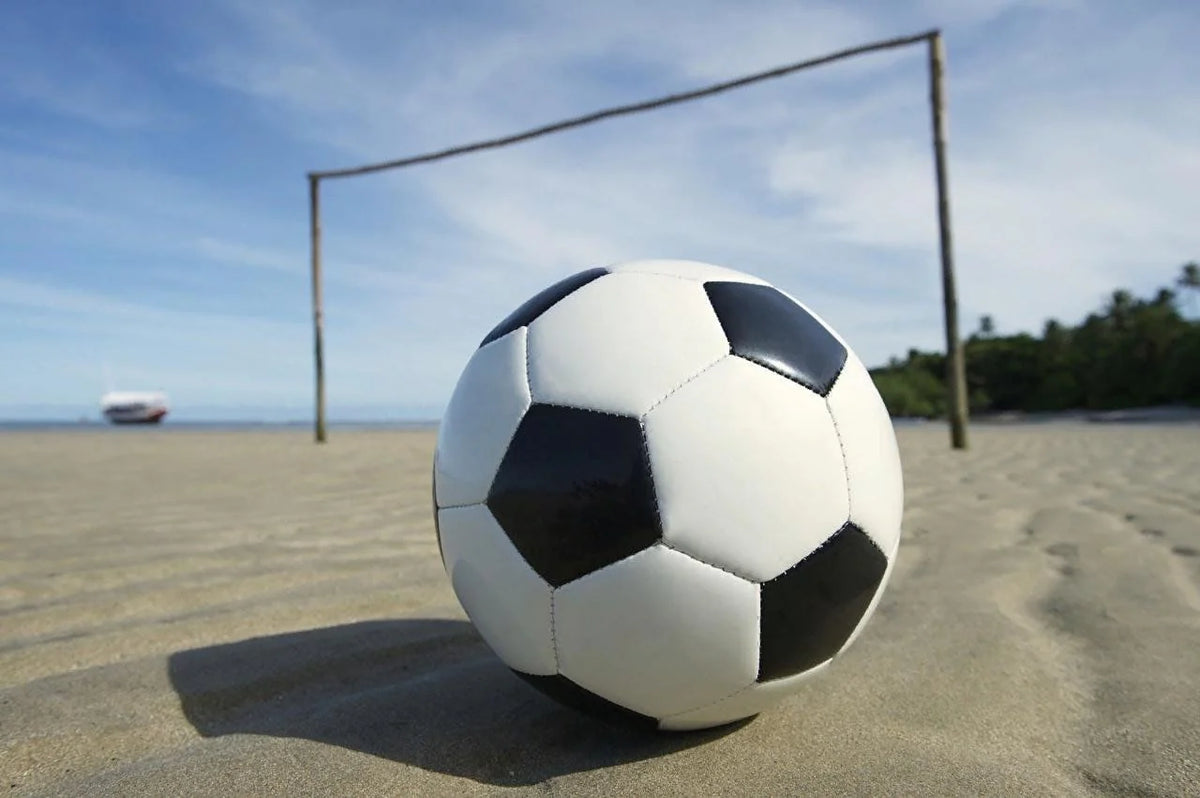
What Size Soccer Ball Do I Use?
|
|
Time to read 3 min
|
|
Time to read 3 min
Soccer is a universal sport, and after donning perfect soccer apparel, it all starts with a ball played by people of all ages and skill levels across the globe. Whether you’re a parent buying your child’s first soccer ball, a coach selecting equipment for a team, or a player looking for the right fit, choosing the correct soccer ball size is essential. The right ball size impacts performance, skill development, and safety.
A ball in soccer plays a role that nothing else can play because it can diminish or increase your gaming effect. That’s why understanding the different soccer ball sizes, their recommended age groups and their uses will help you make an informed decision.
This guide provides everything you need to know about selecting the perfect soccer ball size.
Just like soccer gear comes in variable styles, colors, and fabrics, Soccer balls also come in five different sizes, each designed for specific age groups and levels of play. Below is a breakdown of soccer ball sizes and who should use them:
Size 1 soccer balls are the smallest and are often used as promotional items or for skill improvement. While they aren’t meant for official gameplay, they are great for young children to learn to handle a soccer ball and for advanced players to refine their control.
Circumference |
Weight |
Recommended For |
18 - 20 inches |
7 - 9 ounces |
All ages (primarily used for skill training and fun) |
A size 2 soccer ball is slightly larger than a size 1 and is ideal for young children just starting to develop fundamental soccer skills. Older players also use it for footwork drills and ball control exercises.
Circumference |
Weight |
Recommended For |
20 - 22 inches |
8 - 11 ounces |
Ages 3 - 5 |
This is the first official soccer ball size for organized youth leagues. It’s lightweight and more effortless for younger players to kick, dribble, and control. Using a size 3 ball at this stage helps kids develop coordination and confidence in their skills.
Circumference |
Weight |
Recommended For |
23 - 24 inches |
11 - 12 ounces |
Ages 5 - 8 |
A size 4 soccer ball is slightly smaller than an official adult ball, making it perfect for players transitioning from youth leagues to more competitive play. It allows young players to practice with a ball that prepares them for the next level while ensuring ease of control.
Circumference |
Weight |
Recommended For |
25 - 26 inches |
12- 14 ounces |
Ages 8 - 12 |
This is the standard soccer ball used in official matches worldwide, including FIFA, UEFA, and professional leagues. It’s the heaviest and largest ball size, designed for advanced skill levels and competitive gameplay.
Circumference |
Weight |
Recommended For |
27 - 28 inches |
14- 16 ounces |
Ages 13 and up (High school, college, and professional play) |
Now that you know the different sizes, here are some additional factors to consider when selecting a soccer ball:
If you’re buying a ball for a toddler or fun, a size 1 or 2 is a great choice.
Many players use smaller sizes like 1 and 2 to improve control for training and skill-building.
If you are playing in a league, use the official size or a ball like PUMA-ORBIT-6MS , which is recommended for your age group.
PVC Balls : Affordable and durable, perfect for recreational play.
PU Balls : Softer and better for match play, offering a more controlled feel.
Leather Balls : Traditionally used in professional matches but less common today due to water absorption issues.
Street Soccer : Tougher, reinforced balls are ideal for playing on concrete or asphalt.
To get the most out of your soccer ball, proper maintenance is essential:
Keep it Properly Inflated : Check the recommended pressure printed on the ball and use a pump to maintain optimal air pressure.
Store It Properly : Keep your ball in a cool, dry place to avoid damage from extreme temperatures.
Clean After Use : Wipe the ball with a damp cloth to remove dirt and debris, especially after playing on wet or muddy fields.
Rotate Use : If you play regularly, having multiple balls and rotating their use can extend their lifespan.
Choosing the right soccer ball size is crucial for developing skills, enjoying the game, and ensuring safety. Whether purchasing for a child, training for competitive play, or enjoying a casual kickaround, using the appropriate ball size enhances your experience.
Check out our soccer store for high-quality soccer balls, gear, and uniforms. From innovative groove designs to consistent spins, you can explore the finest features in our soccer balls. Have doubts? Explore our Nike Academy Team Ball WHT/BLK/LIME or other collection to pick your best for all things soccer.
Now that you know which soccer ball size to use, it's time to hit the field and enjoy the beautiful game!
Lorem ipsum dolor sit amet, consectetur adipiscing elit, sed do eiusmod tempor incididunt.